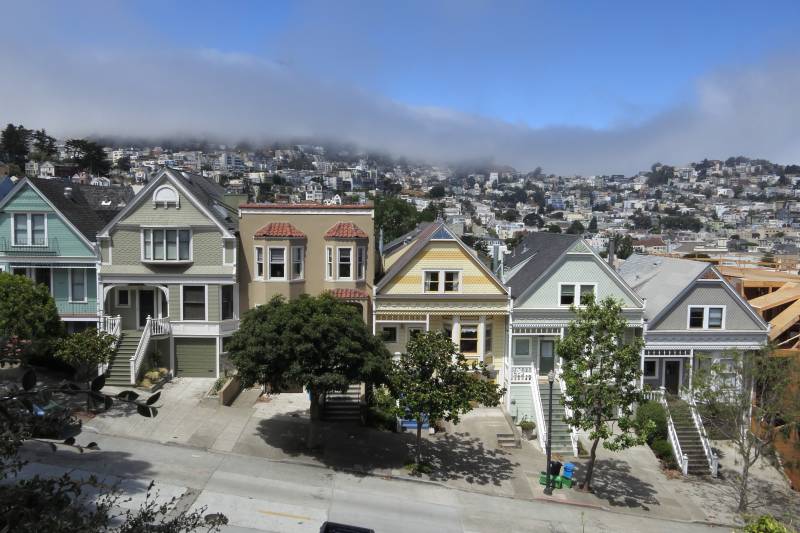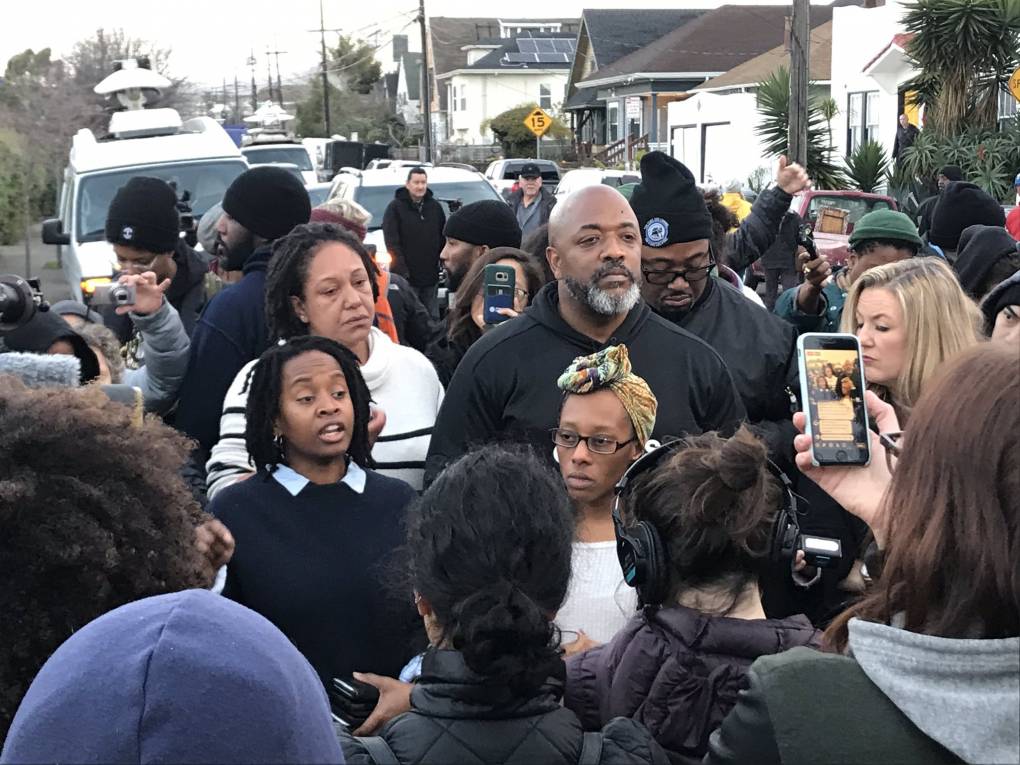Even if you can afford to buy a home in the Bay Area, you might get outbid by an anonymous shell company paying cash. Over the years, more American homes have been bought up by these companies, with fewer and fewer homes being owned by individuals and families.
And on top of that, we don’t even know who owns all of these properties. But the U.S. Treasury Department does – and the folks at Reveal are suing for that information.
Guest: Aaron Glantz, senior reporter at Reveal and author of the book “Homewreckers.” Check out more on Reveal’s ongoing lawsuit here.
We’re doing meetups in all nine Bay Area counties this year! Our first one is in Vallejo. Come hang out with us at Mare Island Brewing tap room near the ferry building on Friday, Feb. 7 between 5-7 p.m.
Interview Highlights
KQED’s Devin Katayama: First off, tell me why we’re standing in front of this house on Delano Avenue [in San Francisco’s Balboa Park neighborhood].
Aaron Glantz: We’re standing in front of this house at 66 Delano Avenue because it’s one of many, many homes all across the country that have been bought up by shell companies where we don’t really know who the owner is.
If you look around and you wonder, why can’t I buy this house? Why can’t I buy any house? A lot of the time it’s because it’s been bought by a shell company.
A distant landlord owning a building like this instead of somebody who lives in it means that the building can sit empty, boarded up with a fence around it and get no attention for a long time, because Mr. LLC doesn’t walk up and down this block and see this burnt out building every day.
Is this pretty common? For houses owned by shell companies to just be sitting empty?
Well, I mean, this is one of the things that we don’t have a good understanding of. There are a lot of theories about who is buying up our real estate. Are we talking about Silicon Valley techies? Are we talking about international money from China and Russia? You know, are we talking about Airbnb? Are we talking about people just parking their money? We don’t really know. There’s a lot of unanswered questions. And that’s why Reveal has gone to court, suing the Treasury Department to get answers to some of those questions.
What’s the benefit of creating a shell company to own all these homes?
Well, the statute creating shell companies was created many years ago, and was actually created to help an oil company in the Rockies that had oil rigs in Central America. And it wanted to limit its liability in the case that something happened on those oil facilities in Panama.
So, LLC stands for limited liability company. They wanted to distance their liability for whatever happened in Panama to the company back in the Rockies. Over the years, however, this has been used by real estate moguls to amass property and hide the true source of their money from the public.


